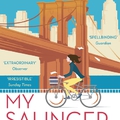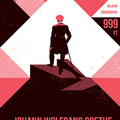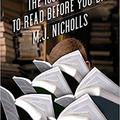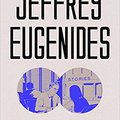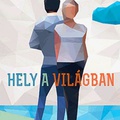Angela Carter: The Bloody Chamber

I read The Magic Toyshop by Angela Carter a couple of years ago, and it was such a good novel that I definitely wanted to read more by the author. Plus, as I was an English major student at the university, it is still important for me to get to know the work of such seminal authors I only heard about as a student, but due to a lack of time or my different schedule did not have the chance to read their works.
Speaking about majoring in English, I must mention that after reading two of her books, I consider Angela Carter to be one of the most suitable authors for a course in English literature. Her books are full of literary and cultural references (of which, I guess, I only recognize about 1 percent); they can be read from a psychoanalytical, a feminist or a magical realist point of view; and whole courses could be filled with the analysis of her strong, often erotically charged words and symbols. Despite all this, Angela Carter doesn’t intimidate me, and I don’t consider her to be a writer whose work can only be appreciated and enjoyed if you happen to be a university professor of English literature.
The Bloody Chamber consists of ten short stories, and each one is the adaptation of a well-known tale or legend. Among them we find the stories of Little Red Riding Hood, Puss-In-Boots and the Beauty and the Beast. In her foreword to the book English author Helen Simpson mentions that The Bloody Chamber is not the rewriting of these tales from a feminist perspective, instead (according to both her and Angela Carter) it is a collection of stories which bring the hidden contents of the old tales to the surface and the author uses these contents to write new stories on their basis. And I agree with Simpson and Carter.
While reading these tales, I indeed felt that Angela Carter wrote new stories, and the fact that her stories are based on tales known to virtually everybody is ’only’ important as this way the stories are provided with an extra layer of meaning. This of course entails that you don’t necessarily have to know the original tales in order to understand the tales of Angela Carter. I, for example, was not familiar with the exact story of Puss-in-Boots, but I greatly enjoyed Carter’s tale of the same title.
Angela Carter also creates an interesting effect by featuring modern devices such as the telephone, the train or the bicycle in the tales set in an unidentifiable period. By using such out of place objects in her stories, she creates a distance between the original tales and her own versions of them (since in the original texts, naturally, no such objects appeared), and also emphasizes that the violence and eroticism present in the original tales is also very much there in the lives of heroes living in an era of technical achievements.
The short stories of this collection are, by the way, rather oppressive, stifling and orgiastic texts. A reason for this oppressiveness could be that most of the stories consist only of descriptive passages, and contain no dialog whatsoever which would make the story easier to read and digest. Another reason could be that Angela Carter obviously enjoys her own writing and luxuriates in dark words suggesting decadence, animalistic feelings, perverseness and corruption. In her world, the sweet smell of roses always mingles with the dazing stench of decay, and even the purest virginity always foreshadows future promiscuity and cruel sexuality.
Because of all these, it must be a real challenge for any translator to translate the work of Angela Carter. It can’t be easy to render the poetic and erotic language of Angela Carter in another language without the result being kitschy and ridiculous, and it must also take a lot of effort and ingenuity to make sure that the motifs surfacing at different parts of the same short story or appearing in several stories (such as the contrast between the cold North and the seemingly warm, friendly South; the roses which appear all the time; or the not entirely human lovers) appear where they need to appear, and that the bizarre words appearing from time to time resonate throughout the whole collection, and constantly remind the reader of the context in which they previously appeared.
And simply reading Angela Carter is quite a challenge for me – but it’s a pleasure as well. I have to pay a lot of attention to it but it’s worth the effort. My only problem with Carter is that she is a bit too clever and conscious for me (and I’ve never thought that one day I will object to these qualities). If only she were a bit more spontaneous and human, I could easily become her greatest fan. But this way I only know and understand what a good writer she was and I will definitely read her other works as well, but she will never become my favourite.

